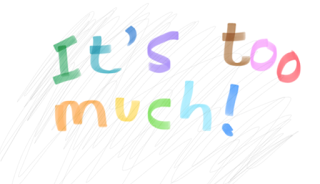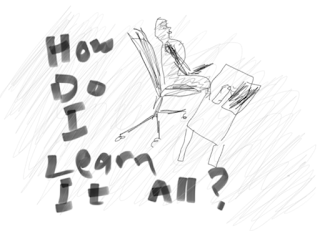So…what do you want to know?
I guess there are 3 readers this agile principles blog post is targeted at:
- Total newcomer to the whole agile movement/thing
- Someone who has had some brief training, or read a few books, or someone working next to a team “going agile”
- Someone who just wants to understand when to reject agile and when to accept agile
Firstly, welcome to this post (actually several that are linked!) about “agile”. I’ve said to myself for a number years, “do not go gentle into that good night” as many many have tried and most have only partially succeeded…the road to hell is paved with good intentions, and many brave good people who tried to communicate their "Eureka!"
To be inspired, and honour William Shakespeare, a little reminder from Hamlet, Act III, Scene 1 with agile updates:
To be [agile], or not to be [agile]: that is the question!
Whether 'tis nobler in the mind to suffer
The slings and arrows [mistakes] of outrageous fortune [delivery in the past],
Or to take arms [learn from the past] against a sea of troubles [complexity],
And by opposing [with a modern, learned mindset and approach] end them [deliver successfully and sustainably with a team that becomes a real competitive advantage]?
Note - I’m not trying to introduce or explain my interpretation of "agile" with this particular post.
Instead I am going to connect various ways I have taught the 12 agile principles that are behind the agile manifesto to people who have attended my courses or people I have coached or led in organisations. I’ve read (and continue to read) (all) the books, speak to (all) the people and make my own mind up based on my experience.
I reckon if you and your team and/or peers follow the logic of the linked “HowTo Learn/HowTo Teach the agile principles” - and apply my guidance, you and your learners will discover for yourselves what these elusive, ambiguous, uncertain, etc principles mean for you and for your unique situation. And this deeper learning/realisation will set you up for great success in whatever you are going to attempt for the rest of your career.
A pushy declaration, I know. But I’ve been watching the people who really “got it” on my training and how their careers (thanks to linkedin!) have proceeded since 2010…and I am very pleased for them! And even more pleased that a simple manifesto and a few simple principles that were initially thought about in the software development and delivery space that I initially embarked my adult work life in ... have become to be understood as entirely applicable in all walks/works of life.
In the purest nutshell, by the dictionary, agile means "quick and nimble". These days it also has some ambiguous meanings appropriately and inappropriately added to the term, including "10,000 practices you can try to make your organisation quicker and nimbler" - also known as more competitive.
 |
| Agile Is [NOT] Too Much To Learn |
I’m iterating this post, but over time the dedicated walk-throughs for learners, trainers, teachers, managers and the curious will expand here. Agile is really easy to explain and learn, but challenging to embody. You will see!
- Agile in 3 Words
- Agile in 4 Words (in response to my earlier "3 word" attempt)
- Agile In a Nutshell
- Agile In a Nutshell Part 2
- Agile In a Nutshell Part 3
- Agile In a Nutshell Part 4
- Agile Principles 101
- Agile Principles 102
- Agile Principles 103
- Agile Principles 104
- Agile Principles 105
 |
| What Is Agile For? |
Perhaps Agile is not a What, perhaps it is a When, or maybe it is a How?
Thankyou for supporting! Happy learning "to be agile" :-)

![Zimbardo photo By Jdec (Own work) [GFDL (http://www.gnu.org/copyleft/fdl.html) or CC BY-SA 4.0-3.0-2.5-2.0-1.0 (http://creativecommons.org/licenses/by-sa/4.0-3.0-2.5-2.0-1.0)], via Wikimedia Commons Zimbardo](https://upload.wikimedia.org/wikipedia/commons/c/c9/Zimbardo_in_Warsaw_2009.jpg)
